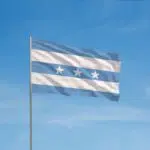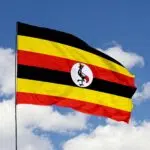Baby Loss Awareness Week is observed annually every October 9 to 15 in the U.K. It aims to raise awareness of baby loss during pregnancy, at birth, or in infancy while supporting bereaved parents and families. The week is also an opportunity for bereaved parents and their families and friends to unite with others across the globe to commemorate their babies’ lives. Moreover, Baby Loss Awareness Week is to drive improvement in care and support for those affected by pregnancy and baby loss. We invite you to join in on these efforts to create awareness about such an important issue.
History of Baby Loss Awareness Week
Baby Loss Awareness Week is a week of remembrance. It’s also to raise awareness of such losses to improve care and support for those affected. It began as Baby Loss Awareness Day on October 15, 2002, in the U.K. It was initiated by a group of parents inspired by Pregnancy and Infant Loss Remembrance Day in the U.S.
In 2003, the campaign expanded from a day to a week, with events held across the U.K. The first “Wave of Light” event was held at the American International Church in London, attended by representatives and members of each participating organization. In 2004, the campaign was a more formal collaboration between five organizations, including Sands, Miscarriage Association, Ectopic Pregnancy Trust, Antenatal Results and Choices (ARC), and Babyloss. Ribbon pins were commercially manufactured, and balloon releases were held in some locations.
In 2006, the distinctive two-color ribbon was introduced — the pink and blue ribbon. Ribbon pins were made, again, by bereaved parents with their family and friends. Since 2010, Sands has played an essential role in organizing Baby Loss Awareness Week. In 2014, Sands began taking a lead role in promoting the campaign as part of their work, raising awareness of the issues associated with pregnancy and baby loss in the U.K. Baby Loss Awareness Week is dedicated to eliminating the taboo on open discussions regarding pregnancy and baby loss.
Baby Loss Awareness Week timeline
The United Kingdom’s first-ever pregnancy research center, which focuses on pre-eclampsia and premature birth, is opened at St Thomas’ Hospital.
Baby Loss Awareness Week is initiated in the U.K.
The campaign extends from a day to a week and is held in the same year as the first official “Wave of Light” service.
Labor Member of Parliament (MP) Vicky Foxcroft offers personal testimony in support of the week of remembrance.
Tommy’s National Centre for Maternity Improvement, which is the U.K.’s largest charity researching the causes and prevention of miscarriage, stillbirth, and neonatal death, among other things, is founded.
Baby Loss Awareness Week FAQs
What is considered a rainbow baby?
This is the baby that you have after the loss of a child. This baby acts as a symbol of renewal and hope.
What is it called when a newborn dies?
It is called neonatal death, also called newborn death, when a baby dies during the first 28 days of life.
Can stress cause a miscarriage?
Some studies suggest that stress can increase the risk of miscarriage, but there is no direct link between stress and miscarriage.
How to Observe Baby Loss Awareness Week
Spread the word
Share the information on your social media to let more people know about Baby Loss Awareness Week. It will help bereaved families get more support, and hopefully, they won’t feel alone.
Buy pink and blue pins
The pink and blue ribbon pins are usually made by the bereaved parents with the help of their family and friends. Buy and wear a pin to show support to the bereaved parents. The money raised from the sales will go to charities supporting people after the loss of their babies.
Join the Wave of Light
Take part in the “Wave of Light” by lighting a candle for one hour at 7 PM and leaving it on for at least an hour in remembrance of all the babies who died during pregnancy, during birth, or soon after birth, and in infancy. Take a photo and post it on your social media with the hashtag #WaveOfLight.
5 Facts About Miscarriage
The parents’ age plays a significant role
The miscarriage incidence is increased if the parents are 35 years old or older.
10-20% of known pregnancies end in miscarriage
Around 10-20% of known pregnancies end in miscarriage, but the actual number can be higher.
It can happen to anyone
Miscarriages can happen to anyone, and the causes are not well understood.
You can’t prevent it
You can’t prevent a miscarriage from happening in most cases; you can just try to reduce the risk by trying to stay as healthy as possible.
It’s not a sign of infertility
Most women who experience miscarriage can have successful and healthy pregnancies afterward.
Why Baby Loss Awareness Week is Important
We get to give our support
Baby Loss Awareness Week is for us to show support to those bereaved parents for the loss of their babies. Hopefully, the support can help reduce the grief they’re going through.
It unites bereaved families
Baby Loss Awareness Week is an opportunity for bereaved parents to connect globally with other parents with the same experience. They can support one another and commemorate the babies together.
We learn something new
This week can be eye-opening for all who hope to one day become parents. Being aware in advance of the causes of miscarriages can help one be better prepared.
Baby Loss Awareness Week dates
| Year | Date | Day |
|---|---|---|
| 2025 | October 9–15 | Thursday–Wednesday |
| 2026 | October 9–15 | Friday–Thursday |
| 2027 | October 9–15 | Saturday–Friday |
| 2028 | October 9–15 | Monday–Sunday |
| 2029 | October 9–15 | Tuesday–Monday |
















